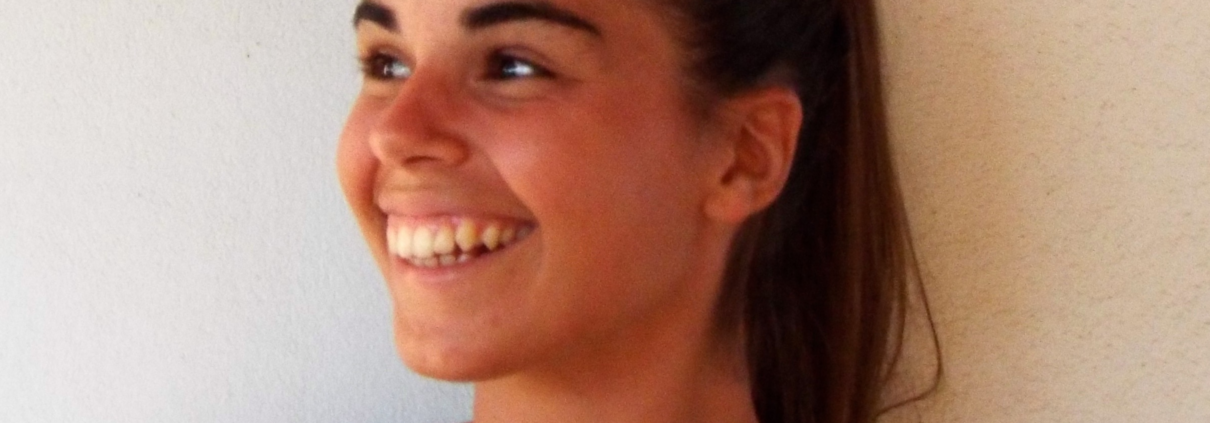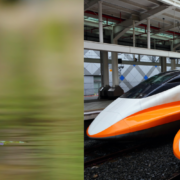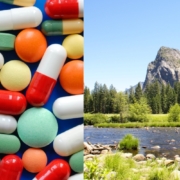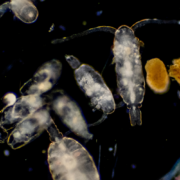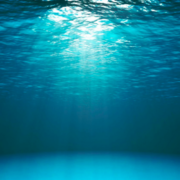Michaela Korodimou is a PhD candidate under the FNRS FRESH funding scheme at the university of Liege. After a degree in Liberal Arts and Sciences, majoring in Anthropology and Development, Michaela went on to obtain an MSc in Environmental Change and Management from the School of Geography of the University of Oxford. Michaela’s interests come together at the intersection between climate change and migration. Initially working on a number of projects relating to climate change and indigenous knowledge for adaptation on the grassroots scale in East Africa and South America, she later delved into the field of disaster relief and migration, working in Greece as a field coordinator in refugee camps in the north of the country.
What were the events or facts that led to your awareness on environmental issues?
I was raised in the mountains of Parnassos national park, Greece. For the first years of my life we lived in a small cabin built by my grandfather and my parents. With no electricity and a trip to the well for water, the mountains and forest I lived alongside were both a playground, inspiration and teacher. These formative years were crucial in the ways in which I saw myself in the face of nature. I think we often see humans as separate to the natural world, for me it is less of a dichotomy, more an extension of self.
I believe that watching the changes in my mountains has been one of the most personal and motivating factors leading to me wanting to increase my knowledge and awareness and engagement in environmental changes. In noticing, I see the ways in which the snow falls differently (and unfortunately seemingly less predictably) each year, I see the rise in the summer rains and the land use shifting from untouched valley covered in wild purple flowers to an increasing number of rarely used second homes.
This way of engaging with the world, of feeling connected to all that is impacting and impacted by me, has placed me in a position to noticethe environment and the way it changes around me. I believe that when you feel connected to something, when you love it, you notice it. By noticing, for me, it is impossible to not care.
After this connection and this noticing, I would attribute my awareness of environmental issues to a combination of experience and inspiring educators.
I have been incredibly lucky to experience a large number of places and meet many wonderful people. The world has astonished me in its wildness, seeing the salmon swim miraculously upstream and the infinite vastness of the Amazon rainforest are awe inspiring. Yet, I have also seen the ways in which environmental changes are affecting people, making poor people poorer, uprooting lives and creating conflict. These experiences for me, all point to the same thing; a large majority of the world is living with the idea that they are separate from nature, that it can be conquered and manipulated. Yet, this hubris comes at a high cost.
The experiences where I have seen first-hand the ways in which we are having an impact have been the most motivating and have driven me to want to know more, in order to be able to act.
You often speak of environmental issues with a light tone, whereas the topic can appear to be quite distressing. According to you, is there a specific angle or message that should be highlighted when addressing these subjects to encourage people to take action?
Environmental issues, are and should most certainly be, talked about seriously. We, as the international community, have a responsibility and duty to those suffering the most immediate effects of climate change and environmental change to not lessen the loss and pain which both people and environment are suffering.
It is of utmost importance that people realise and engage with immensity of what years of environmental destruction has done to the world we call home, and more importantly that people feel empowered to break out of the negative cycles we are in.
However, I do not think that the way to do that is through fear. Born in 1992, the year of the Rio Earth Summit which provoked international and mainstream discussion on climate change and environmental issues, I have been hearing about climate change all my life. Yet, often in ways that incite a sense of fear, of overwhelmingness, of disempowerment.
I speak to people in a seemingly light tone, with the hope that they are able to understand the facts, the urgency and the interconnectedness of issues, but to come out feeling empowered. When people are allowed the space to process what is happening without fear blinding them, without feeling dishevelled and overwhelmed, I believe that they can start to connect it to the places which they call home, the places they love. And once that love is in the picture – there’s no stopping them!
The specific angle we should be taking when speaking to people is that of connection. Whether we see it or not, we are all totally dependent on the planet and it’s wellbeing. Once we realise our connections, once we realise we are a part, not apart from the environment, then I believe we will be able to see more clearly how we have no option but to act.
The Atlas of Environmental Migrations, states that there are 3 times more climate refugees than war refugees today. Why hasn’t this been more mentioned in a political and media level?
I think this has to do with a number of reasons.
First is the attribution question. It is relatively easy to see when there is war happening, environmental migration can happen for a number of reasons. Years of drought can lead to repeated crop failure, soil erosion, lack of drinking water, the list continues… Sea levels do not rise over night and suddenly sweep away a village – erosion is a constant companion, gnawing away at the foundations of homes and livelihoods. On top of that, people often move temporarily after an environmental hazard and then move back home again. Until one day, they can no longer move back. Yet it is difficult to really point directly to one cause that has meant they will not return.
With guns, with war, we often know (to a certain extent) who the different sides are. We know when they started bombing or shooting or persecuting people. With climate change, and environmental refugees, it’s much more difficult to point to a direct blame.
Secondly, I think it is a question of scale and geographical location. Environmental migration often happens nationally, and often the places feeling the effect of environmental change are in the global south. Unfortunately, unless they directly affect the global north, people will not be as much in the media spotlight.
Finally, this is so new to us. People have moved in response to the environment since time immemorial. Indigenous pastoralists shift seasonally with their livestock and people have always been moving to survive. Yet we have not really been faced so starkly with this issue of such large numbers of people potentially having to migrate forever as we are now. Talking about “climate refugees”, placing them on the political agenda and in the media spotlight means acknowledging them, and acknowledgement of an issue ensues responsibility and accountability to those people. Perhaps, it is because we are not ready to deal with such a large impact of climate change yet, perhaps it is because we don’t really know what to do.
What has your thesis on climate migration taught you on ways to protect climate refugees in the future?
My thesis focuses specifically on the ways in which young (15-25 years old) displaced populations connect to the new places which they now call home. This is done with the idea of using their lived experience and understanding to design strategies to support future environmentally displaced populations.
I think one of the biggest things my research is showing me is to trust people. In trusting them, we are able to express their autonomy and have a say in the ways in which they will move and connect. We need to be listening to the needs of people instead of designing blanketing strategies for them which we copy and paste around the world.
This sounds logical and unsurprising of course, yet I believe that we too easily fall into the trap of repeating what we have done before and already know how to do. People have been taking in refugees for years, yet there are numerous flaws with the way in which the system is currently designed. Living and working in Greece with refugees in camps I see this all the time. We need to learn from our mistakes and use this as an opportunity to design better systems to support people.
Populations at risk of environmental change, who may have to engage in migration as an adaptation strategy know what is important to them. They know what they need, and what will best make them feel safe. Instead of assuming the needs of people, and designing relocation strategies for them, we need to take into account the autonomy, knowledge and needs of people and design those strategies with them.
When dealing with this issue, in what ways can we get involved on an individual level? How can citizens and companies take action? (Especially when living in an area that hasn’t yet been affected by climate change in an obvious way.)
I think involvement comes on a number of levels and is dictated by two things.
First it is about noticing and secondly it is about care. I hope that these things will lead to a feeling of responsibility, accountability and action.
In terms of noticing, I think this is important because once we notice and are aware of something, it is much more difficult to let it slip by. We often hear about “climate change”, it is a big bad thing that is happening high up in the atmosphere and melting the ice for the polar bears… But if we take it upon ourselves to learn more about what that really means, even for one small creature, or a specific place then it suddenly becomes a whole lot more real.
So to begin with, people can narrow it down and chose a focus. This can be as small as a specific species of plant or animal or fungi is affected by environmental changes. Very quickly it will begin to become evident that the web of interconnection is vaster than we can ever even begin to imagine.
Knowing in itself is not enough. We also need to engage the fundamental practice of empathy and extend our boundaries of care. By informing ourselves of the lives and experiences of others, and then by practicing a caring, further than we normally do, we begin to put into place the mechanisms for change.
Once we know and care about something, we can then begin to feel responsible and accountable. We can begin to look within ourselves and see what our capacities are to ensure the wellbeing of the things we care about. This can be on a variety of levels and it is up to the individual to decide how brave they can be, how much of a shift they can make in their own lives for something they love and care about, for the place they call home.
At ENGAGE, we enjoy imagining desirable futures. What would yours be?
My desirable future entails a world where educators are invested in and held as accountable as surgeons and doctors. If we can inspire and empower our children and people in general to realise that we are not separate from nature, that in impacting the planet they are impacting themselves and that wild places we see around us are to be loved not conquered and feared then I think we are heading in the right direction.
It is a world where we value and practice empathy as easily and often as breathing, it is engrained in our beings. Where people take time to notice one another, notice the world around them and imagine being in the place of the other.
Finally, it is a world where I can spend more time in the mountains, in the stillness of the pines reading infinite Isabel Allende books in my hammock!

